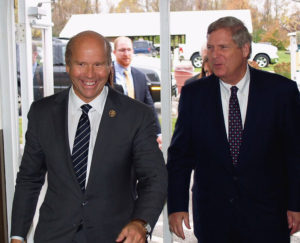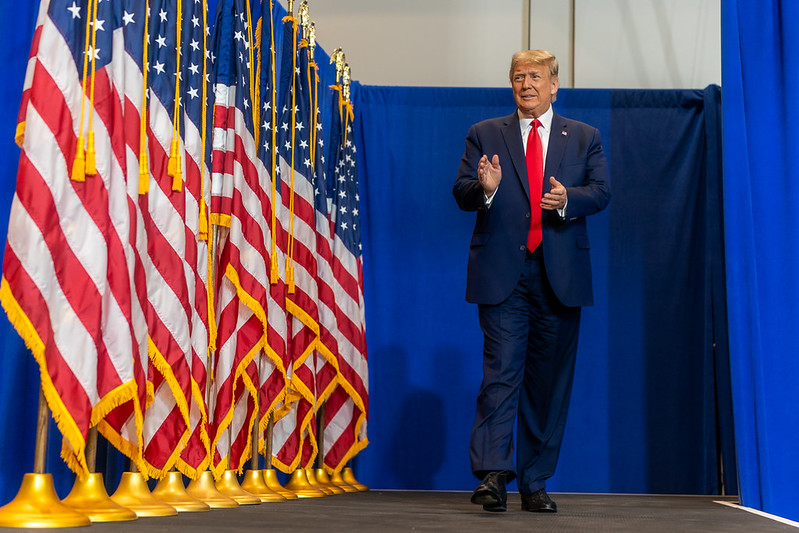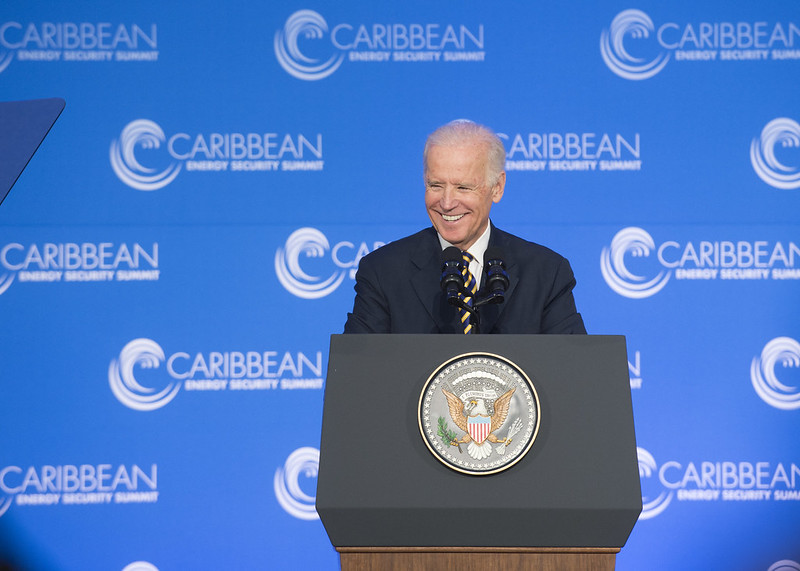
Recently, James Freeman (WSJ) asked former Rep. and presidential contender John Delaney (D., Md.) to comment on recent wage gains during “the Trump era compared to an Obama era characterized by rising stock prices but disappointing earnings for the average worker.”
Mr. Delaney on Inequality
“I think the economy up until recently has done pretty well and I’m happy about that. And I think the Obama dynamic was a little bit distorted because if you think about the situation President Obama walked into, which is the greatest economic disruption since the Great Depression, and we put a huge amount of stimulus into the economy which obviously benefited people who owned assets because that’s really what happened. So it really did create a spike in inequality but there was no other way you had to put stimulus in.”
Obama’s Inequality Spike
It seems the distribution of wealth and income, despite the Obama inequality spike, hasn’t changed all that much. In a WSJ column, James Freeman has chronicled significant flaws in the claim that recent decades have seen a massive surge in U.S. income inequality.
This already shaky thesis may not survive the upcoming formal publication of a working paper by Gerald Auten of the U.S. Treasury and David Splinter of the congressional Joint Committee on Taxation. They find “there has been relatively little change since 1960” in the income share received by the top 1% of U.S. earners.
As for wealth inequality, economic historian Phillip Magness recently reported that based on data from the Federal Reserve, the richest 1% of Americans today own only a slightly higher percentage of the nation’s wealth than the one-percenters of the early 1960s.
Will this message penetrate the Democratic debate bubble? Mr. Delaney for his part still insists that inequality has been rising and is a serious problem. But he made clear in our discussion that he’s most concerned with allowing people in the bottom half of the income ladder to grow their wealth and incomes, which should be a priority for all lawmakers.
Mr. Freeman’s brought up his point that “at least some economic inequality is necessary for our prosperity—inventors and entrepreneurs have to know they will be rewarded for their creations.” Mr. Delaney, who founded two public companies before entering politics, admitted that he is a capitalist at his core.
“I believe the U.S. private economy has been the greatest innovation and job creation machine ever created. And we should not be throwing that out the window. But we always make capitalism more just. That’s what we do. We used to let kids work in factories and we stopped that. And a continued evolution is the way I think about it.”
A Truth-Teller on Single-Payer Health Care
Mr. Delaney was not a polling success, which is too bad. His honesty did seem to influence the Democratic presidential debate. For example, notes Mr. Freeman, Delaney’s truthfulness on single-payer health care forced even Bernie Sanders to rewrite his plan.
Mr. Delaney, who failed to come close to qualifying for the next round of Democratic debates, could have helped Democrats “focus on expanding opportunities for all Americans to succeed as capitalists, rather than punishing those who do.”
Read more here.
If you’re willing to fight for Main Street America, click here to sign up for the Richardcyoung.com free weekly email.




